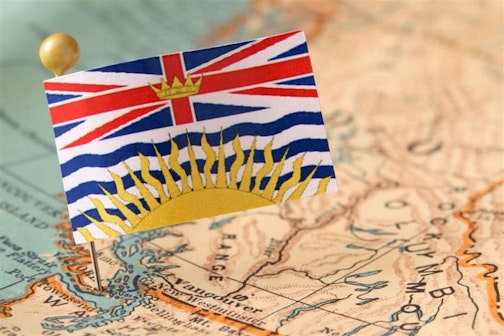
Blog
- Employer advice
Home
Resources
Employer advice

Olivia Cicchini, Employment Relations Expert
(Last updated )

Olivia Cicchini, Employment Relations Expert
(Last updated )
In the ever-evolving modern workplace, employees may sometimes raise issues about the conditions of their jobs, their health and safety, or a colleague’s misconduct. As an employer, you should always strive to provide a supportive environment for employees to communicate these concerns. However, you must never penalize your employees for exercising their rights to report workplace violations or misconduct.
By taking retaliatory actions against an employee, you’ve engaged in workplace reprisal, which is prohibited under provincial and federal laws. Reprisals in the workplace are especially damaging to employee morale, productivity, and retention. It can also lead to costly fines, lawsuits, and the loss of your business’s reputation.
Workplace reprisals involve retaliatory or punitive actions taken against an employee for carrying out protected activities, such as reporting workplace violations, filing complaints, participating in investigations, or exercising their legal rights.
Here are the most common types of reprisal you may encounter in the workplace:
Termination or dismissal
Example: An employee who raises concerns about safety violations is suddenly terminated after bringing the issue forward.
Demotion or negative performance reviews
Example: An employee who files a complaint about harassment gets demoted or consistently receives negative performance reviews without valid reasons.
Isolation or exclusion
Example: After reporting unethical practices, an employee is deliberately excluded from team meetings, projects, or social interactions as a form of retaliation.
Undesirable shift changes
Example: A worker who speaks up about workplace hazards suddenly finds their shift schedule changed to less desirable hours, is forced to work overtime, or gets inconsistent shifts.
Reduced benefits
Example: A whistleblower who reports on shady financial practices is subjected to reduced work hours, benefits, or bonuses.
Unfair treatment
Example: An employee who raises concerns about discrimination in the workplace faces unequal treatment, such as being denied training opportunities or promotions.
Intimidation and hostile work environment
Example: An employee who goes to the HR department about workplace sexual harassment receives increased hostility, criticism, or offensive behaviour from co-workers or managers.
Employers can take proactive measures to prevent reprisals from taking root in their businesses. Here are a few ways to safeguard against workplace reprisals:
Ontario's Occupational Health and Safety Act (OHSA) and Employment Standards Act (ESA) both prohibit employers from engaging in workplace reprisals. If an employee experiences reprisals, they can file a complaint with the Ministry of Labour. Employers found guilty of workplace reprisals in Ontario can face significant penalties, ranging from $1,000 to $50,000 per conviction or 12-month imprisonment.
Corporations face much steeper fines, ranging from a maximum of $100,000 for the first conviction, $250,000 for the second conviction, to $500,000 for the third conviction. Employers may be ordered to pay the employee compensation for any loss suffered due to the reprisal.
The ESA has outlined the steps to determine if workplace reprisals have taken place. If you disagree with a court or tribunal sentencing on a workplace reprisal case, you can appeal the decision through the Ontario Labour Relations Board, Human Rights Commission, or the applicable court.
In Alberta, the Occupational Health and Safety Act (OHS Act) and the Employment Standards Code prohibit workplace reprisals. Employees have the right to report workplace safety concerns, file complaints, or refuse dangerous work without fearing disciplinary actions from their employers.
The province’s Public Interest Disclosure (Whistleblower Protection) protects employees from retaliation when they exercise their rights in the workplace. Employees who are not bound by a collective agreement can file a complaint directly with the Alberta OHS or the Public Interest Commissioner.
The Public Interest Disclosure Act (PIDA) in British Columbia protects employees who disclose matters of public interest or wrongdoing within the public sector. It prohibits employers from taking reprisals against employees. Under PIDA, those who committed workplace reprisals can face fines up to $25,000 for the first offence and a maximum of $100,000 for every subsequent offence.
Similarly, the Workers Compensation Act (WCA) and Employment Standards Act (ESA) also protect employees from retaliation when they exercise their rights to refuse unsafe work, report workplace violations, file complaints, or participate in investigations.
If an employee believes they’re experiencing workplace reprisals due to whistleblowing, they can file a complaint with the Office of the Ombudsperson. This office investigates complaints and may recommend remedies like compensation or corrective actions.
Preventing workplace reprisals is vital for maintaining a positive work environment and complying with employment laws. Our award-winning HR team can help you develop policies that proactively stem the occurrences of workplace reprisals.
Speak to one of our HR experts today to stay up-to-date on employment legislation, develop health and safety procedures, documentation, and more. Contact us at 1 (833) 247-3652.
Home
Resources
Employer advice
Find out what 6,500+ businesses across Canada have already discovered. Get round-the-clock HR and health & safety support with Peninsula.
